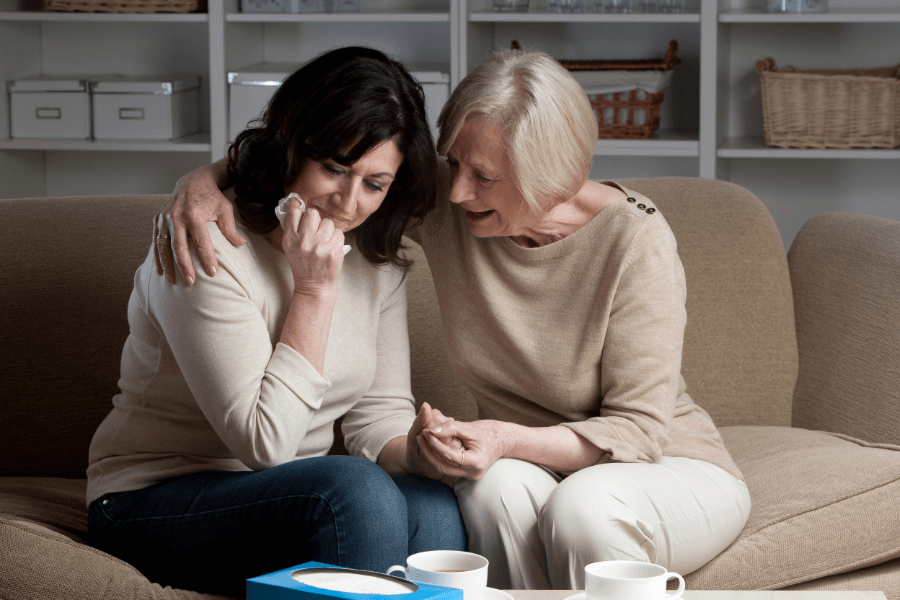Coming to Terms With Loss
Knowing the stages and types of grief is the start of having a healthier coping mechanism. Having to cope with a loss of a person is one of the hardest processes we have to go through. This may be brought by a death of a loved one but other causes of grief exist such as:
Divorce or breakup
Loss of health
Job Losses
Loss of financial stability
Miscarriage
Retirement
Death of a pet
Loss of a cherished dream
A loved one’s serious illness
Loss of friendship
Loss of safety because of trauma
Lost of Family Home
Loss comes in different forms, if it’s personal to you then no one can dictate how you’re supposed to feel. When the loss of a person, pet, or relationship has a big impact on you, it’s normal to grieve the loss you are going through. The grieving process is also different from one person to the other. Factors include a person’s personality, coping style, life experience, faith, and how big of a loss the person is going through. No matter the type of grief, patience, and acceptance are key to allowing yourself to complete the princess.
Ways to better channel the pain or the “heavy feeling”
Admit to your pain
Allow yourself to process unfamiliar emotions
Know that every grieving process is different
Ask close friends and loved ones to support you
Taking care of yourself physically
Understand that grief is different from depression
The stages of grief include denial, anger, bargaining, depression, and acceptance. Not everyone goes through all of the stages and this is entirely normal. Other people are even able to resolve their grief without going through these stages. Additionally, stages are not chronological and may be unique to each individual.
There are symptoms of grief and they come in two types: emotional and physical. Emotional symptoms of grief include:
Sadness - this is the most common symptom of grief. Sadness can make you feel empty, in despair, yearning, or in immeasurable loneliness. Crying often and being emotionally unstable are also part of this symptom.
Guilt - this may come in a form of regret or feeling at fault for the things you did/didn’t do or words you did/didn’t say. You might even feel guilty about not being able to do anything even if it’s completely out of your control.
Fear - losing a partner, a job or your home could make you feel troubled, vulnerable, or pessimist about the future. This can also cause you to have panic attacks. The death of a loved one could also make you question your own mortality, your future without the person, or the present responsibilities that you are going to carry now that you are alone.
Anger - loss may come naturally but feeling angry or resentful is inevitable. Losing a loved one can cause you to be angry at yourself, question your faith, and blame the doctors or even the person who died for leaving you behind. It is when blaming someone helps you feel better about the unfairness of your current situation.
On the other hand, physical symptoms include fatigue, nausea, weak immunity, weight loss or weight gain, aches, pains, and insomnia.
Types of Grief
Anticipatory Grief - this comes when a significant loss occurs before rather than after. Examples include when a loved one is critically ill, you have an aging pet or you know that retirement or job loss is likely which leads to grieving your loss at the present even before the undesirable situation occurs.
Disenfranchised Grief - this happens when the loss you are going through is undervalued, stigmatized, or cannot be openly mourned. This would lead to making you minimizing the loss of a job, a pet, or even a friendship. Other examples include having a miscarriage or the lost of a loved one due to suicide.
Complicated Grief - a significant loss may never completely disappear but would be easier to manage over a period of time. If seasons change and the loss still makes you feel uneasy to the extent that it affects your daily life and other relationships, this is a sign of complicated grief. Reaching out for support is the best way forward for people who are going through this kind of grief which could ultimately enable you to heal.
This is the best time to turn to your family and friends who care about you even if you are the type of person who is independent and likes to keep your thoughts and feelings to yourself. Sometimes the grief can cause us to avoid them but this would just make matters worse and instead, draw them near, spend quality time with them, and allow every help or assistance they offer. People would always be willing to help but others do not understand how communicating what you need can change things for the better. If you do not have someone you could regularly connect with, this could be the start of developing and starting new friendships.
About Reframe Counseling Services
Reframe Counseling offers its counseling and therapy services in Holly Springs & Raleigh, NC. The types and counseling services we provide are counseling for children, counseling for teens, individual counseling, family therapy, parent counseling, and video therapy/teletherapy. It’s never too late to ask for help, schedule an appointment with a counselor today.

